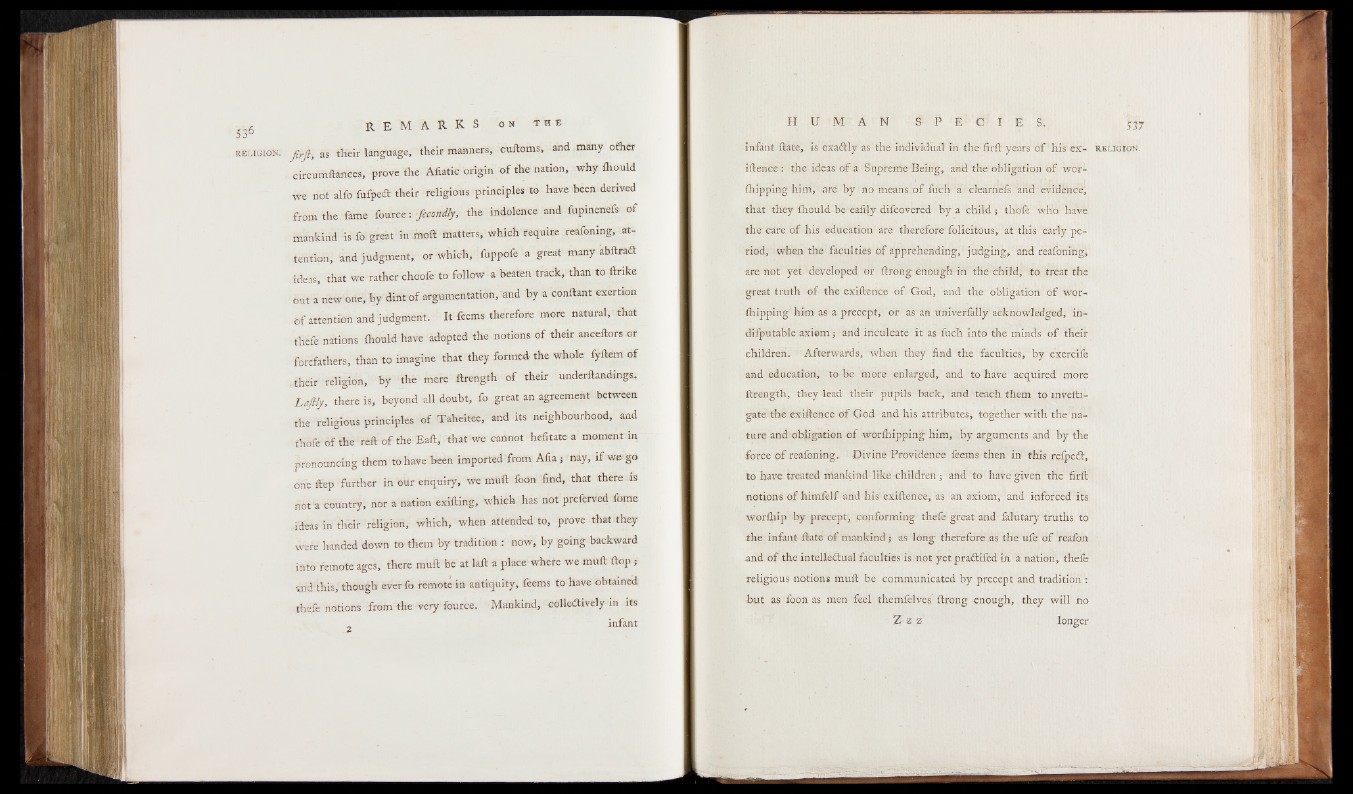
536
R E M A R K S on I B t
RELIGION. as their language, their manners, cuftoms, and many other
. eireumftanees, prove the Afiatic origin o f the nation, why Ihould
we not alfo fufpeft their religious principles to have been derived
from the.fame fource: fecondly, the indolence and fupinenefs of
mankind is fo great in moft matters, which require .reafoning, .attention,
and judgment, or which, fuppofe a great many abftraa
ideas, that we rather choofe to follow a beaten track, than to ftrike
out a new one, by dint o f argumentation, and by a conftant exertion
o f attention and judgment. It Teems therefore more natural, that
thefe nations Ihould have adopted the notions o f their anceftors or
forefathers, than to imagine that they formed the whole fyftem of
their religion, by the mere ftrength o f their underftandings.
Lajily, there is, beyond all doubt, fo great an agreement between
the religious principles of Taheitee, and its neighbourhood, and
fhofeof the reft o f the Eaft, that we caftnot hefitatea moment in
pronouncing them to have been imported from Afia; nay, i f we go
one ftep further in our enquiry, we muft foon find, that there is
not a country, nor a nation exifting, which has not preferved fome
.ideas in their religion, which, when attended to, prove that they
were banded down to them by tradition.: now, by going backward
into remote ages, there muft be at laft a place where we muft ftop ;
and this, though ever fo remote in antiquity, feems to have obtained
theje notions from the very fource. Mankind, collectively in its
infant
H U M A N S P E C I E S. J37
infant ftate, is exactly as the individual in the firft years of 'his ex- r e l ig io n .
iftence: the ideas o f a Supreme Being, and the obligation o f wor-
Ihipping him, are by no means o f fuch a clearnefs and evidence,
that they ihould be eafi-Jy difcovered by a child ; thofe who have
the care o f his education are therefore folicitous, at this early period,
when the faculties o f apprehending, judging, and reafoning,
are not yet developed or ftrong enough- in the child, to. treat the
great truth of the exiftence of God, and the obligation of wor-
fhipping him as a precept, or as an univerfally acknowledged, in-
difputable axiom; and inculcate it as fuch into the minds o f their
children. Afterwards, when they find the faculties, by exercife
and education, to be more enlarged, and to have acquired more
ftrength, they lead their pupils back, and teach them to invefti-
gate the exiftence o f God and his attributes, together with the nature
and obligation o f worlhipping him, by arguments and by the
■ force o f reafoning.. Divine Providence feems then in this relpeCt,
to have treated mankind like children; and to have given the firft
notions o f himfelf and his’ exiftence, as an axiom, and inforced its
worfliip -by precept, conforming thefe great and falutary truths to
the infant ftate o f mankind; as long therefore as the ufe o f reafon
.and o f the intellectual faculties isxnot yet praCtifed in a nation, thefe
religious notions muft be communicated by precept and tradition :
but as foon as men feel themfelves ftrong enough, they will no
Z z z longer
f
f